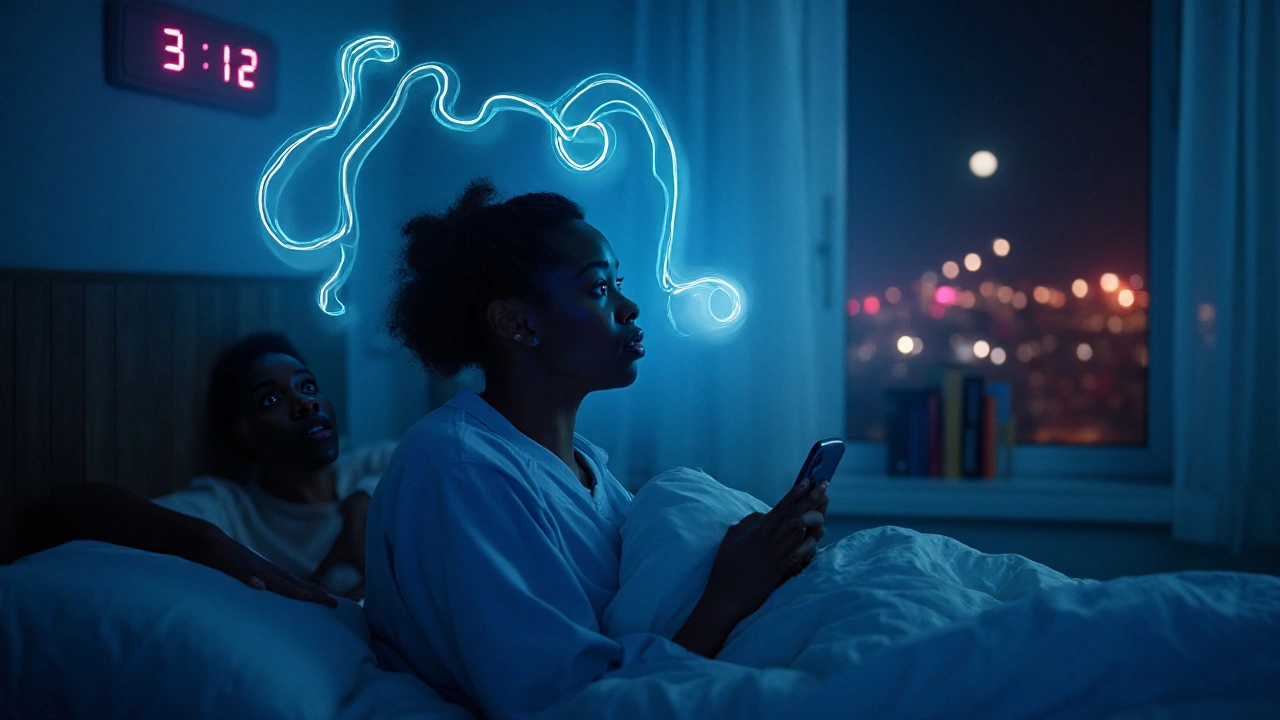
Sleep Disorders and Anxiety: Causes, Signs, and Evidence‑Based Fixes
Struggling with sleepless nights and racing thoughts? Learn how sleep disorders and anxiety fuel each other and what actually works to break the cycle.
Ever feel your heart race for no clear reason, or catch yourself worrying about everything from work to the weather? That uneasy feeling is anxiety, and it’s something most people experience at some point. While a little nervousness can sharpen focus, chronic anxiety can drain energy, mess with sleep, and make daily tasks feel like climbing a mountain.
First, let’s break down the basics. Anxiety isn’t a single condition; it’s a mix of physical signals (like a fast heartbeat, sweaty palms, or shortness of breath) and mental loops (persistent fear, racing thoughts, or a sense of doom). Triggers can be obvious—like a job interview—or hidden, such as hormone shifts or chronic stress at home.
Before you reach for a prescription, try these low‑tech tricks that actually work for many people:
These habits aren’t magic cures, but they give your brain a break from the stress loop and can lower the intensity of everyday anxiety.
If the above steps aren’t enough, medication might be useful. Common prescriptions for anxiety include SSRIs like Paxil (paroxetine) and benzodiazepines for short‑term relief. Our site has detailed posts on medications such as Paxil, how they work, side‑effects, and real‑world experiences. Always talk to a healthcare professional before starting any drug—what works for one person might not suit another.
Other options include therapy (CBT is the gold standard), mindfulness apps, or even supplements like magnesium or L‑theanine, though research varies. The key is to blend professional advice with personal coping tools.
Because anxiety can look different for everyone, it helps to track patterns. Use a simple notebook or a phone note to record when anxiety spikes, what you were doing, and how you handled it. Over time you’ll spot triggers and see which strategies actually lift the fog.
Remember, feeling anxious doesn’t mean you’re weak or broken—it’s a signal that something in your life needs attention. By combining practical daily habits, informed medication choices, and professional support, you can regain control and reduce that constant buzz in your head.
Explore our related articles for deeper dives on specific meds, online pharmacy safety, and lifestyle tweaks that complement anxiety treatment. Vicile’s knowledge base keeps you up‑to‑date with reliable, easy‑to‑read info so you can make confident health decisions.

Struggling with sleepless nights and racing thoughts? Learn how sleep disorders and anxiety fuel each other and what actually works to break the cycle.